T.Loafer (閑隅) seats just 10 people, but the tiny cafe has already garnered plenty of media attention for its unique decor.
Its exterior is lined with more than 20 window frames salvaged from old houses and painted in a faded rainbow of colors, while the inside feels comfortably lived in, with large skylights, vintage furniture and shelves lined with books. The cafe has been profiled in the Apple Daily, served as the backdrop for a cover story on singer Yoga Lin (林宥嘉) in The Big Issue and is frequently booked for wedding photo shoots.
But owner Hsu Cheng-wei (徐政瑋) had only one goal in mind when he opened T.Loafer in the spring: to create an intimate cafe that would double as a platform for fair trade goods and items made by Taiwanese artisans.
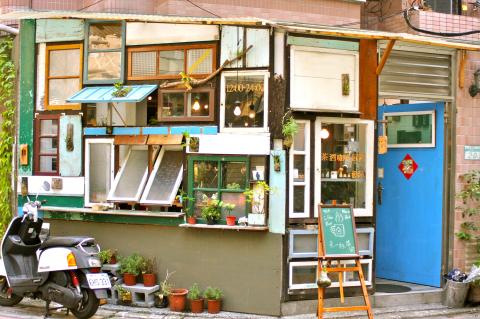
Photo: Catherine Shu, Taipei Times
(T.Loafer’s Chinese name means “small corner,” while the T in its English name stands for the tea served there and “loafer” is what Hsu hopes customers will become while at the cafe.)
Hsu originally wanted to open a hostel for young travelers, but he nixed that plan when he realized that operating costs would be too high. Instead, he focused on his work as a community developer in Sindian, where he works with studio Watch!Touch (手樸隨想), which creates accessories made with natural textiles and dyes.
Over the Lunar New Year, however, Hsu decided he was ready to try his hand at operating a cafe. He had spent his spare time wandering around Taipei City’s lanes and alleyways while studying real estate at university, and was familiar with the neighborhood near Lishui Street (麗水街) in the Shida area.
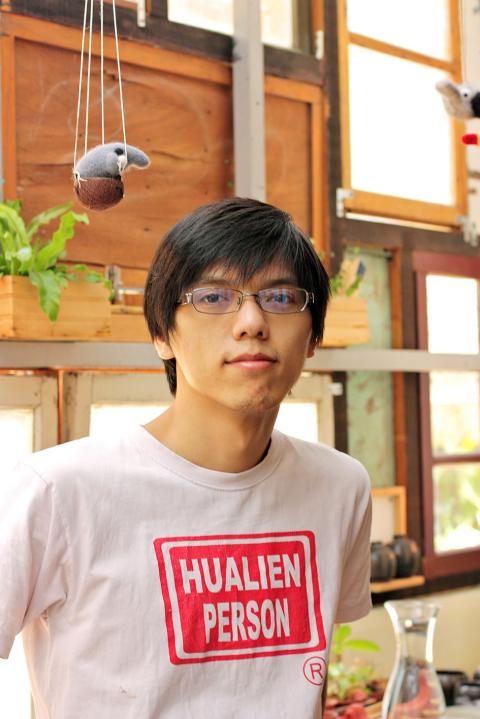
Photo: Catherine Shu, Taipei Times
“I found this space online and thought it was ideal,” Hsu says. “It’s a bit small, but the neighborhood, the environment and the lighting were all perfect.”
Though it is just blocks away from busy Jinshan South Road (金山南路), few cars and mopeds pass by T.Loafer. Instead, pedestrians wandering down the plant-lined alley provide subjects for people watching from T.Loafer’s wall of windows.
When Hsu rented the space, it had an all-white interior. With the help of friends, he completely redecorated the cafe over two months. He replaced the floorboards, added a small, recycled wood bar by the windows and painted the walls a homey shade of olive green. Instant film portraits, gifts from photographers who work in a darkroom downstairs, are taped to shelves.
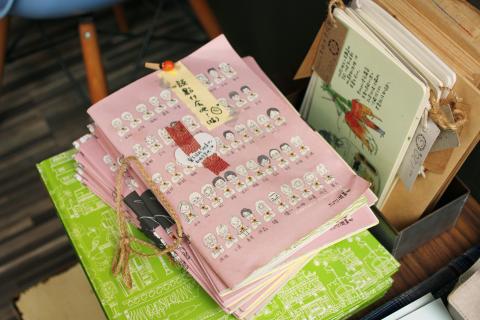
Photo: Catherine Shu, Taipei Times
A gallery of prints by artist Kuo I-kuan (郭以寬) of Chiuzen (沾手) hangs near the entrance, while shelves are lined with handmade items, such as brass and stone jewelry by Su Studio, wallets and scarves by Watch!Touch, hand-carved candles by Izy Home (家?形) and small houseplants in concrete planters by Goodmore.
Other goods include wooden bowls and clay coasters made by craftspeople in Yunlin County and Hsu’s hometown of Hualien.
Despite its popularity as a photo shoot location, Hsu hopes customers will feel free to treat T.Loafer as a second home.
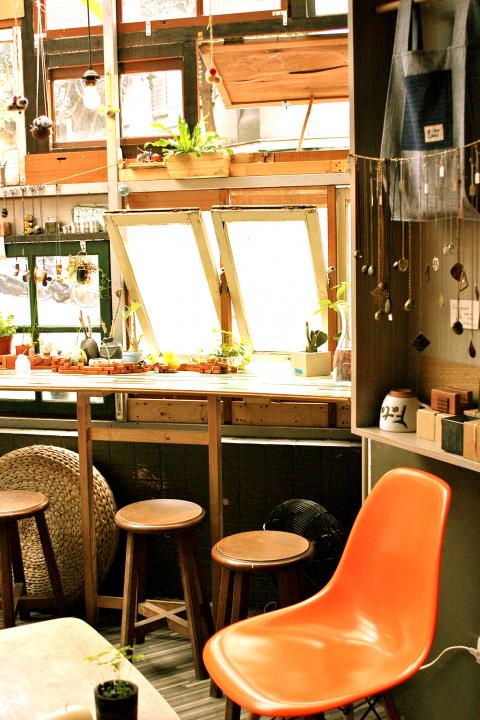
Photo: Catherine Shu, Taipei Times
“A lot of cafes now have very nice, professionally decorated interiors, but the trade-off is that people find it harder to relax in them. We thought why not decorate the cafe by ourselves, the way people decorate their own houses? We want T.Loafer to be a place where people can feel at ease and stay a little while.”
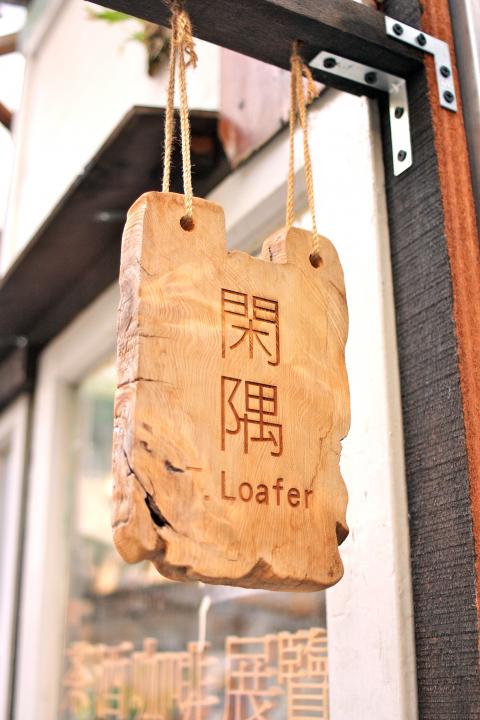
Photo: Catherine Shu, Taipei Times

Photo: Catherine Shu, Taipei Times
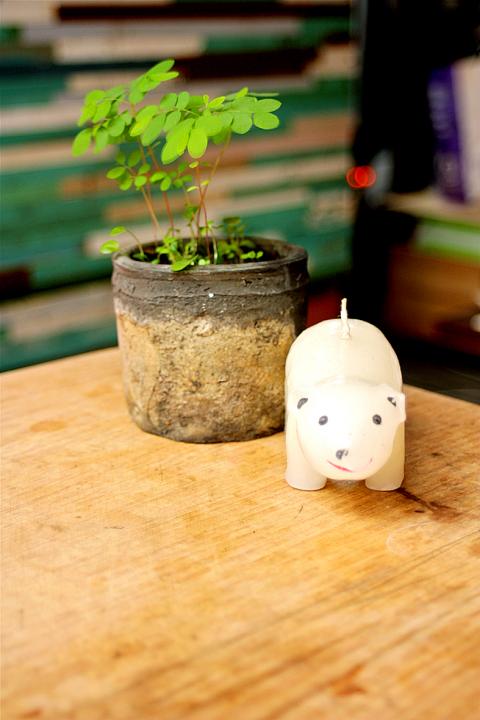
Photo: Catherine Shu, Taipei Times
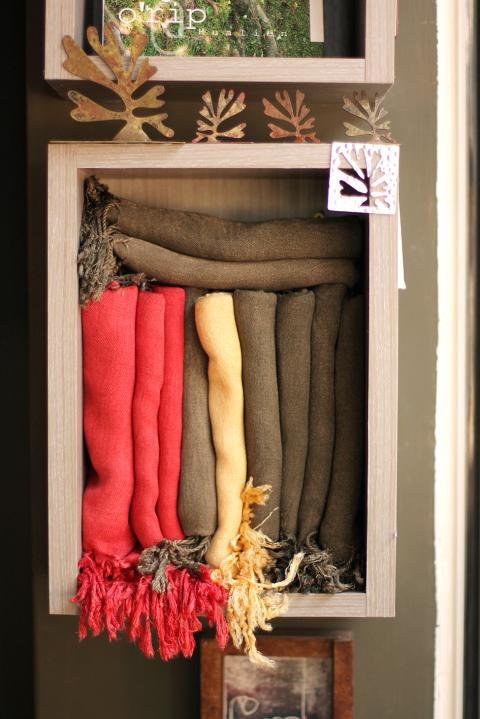
Photo: Catherine Shu, Taipei Times

On April 26, The Lancet published a letter from two doctors at Taichung-based China Medical University Hospital (CMUH) warning that “Taiwan’s Health Care System is on the Brink of Collapse.” The authors said that “Years of policy inaction and mismanagement of resources have led to the National Health Insurance system operating under unsustainable conditions.” The pushback was immediate. Errors in the paper were quickly identified and publicized, to discredit the authors (the hospital apologized). CNA reported that CMUH said the letter described Taiwan in 2021 as having 62 nurses per 10,000 people, when the correct number was 78 nurses per 10,000

As we live longer, our risk of cognitive impairment is increasing. How can we delay the onset of symptoms? Do we have to give up every indulgence or can small changes make a difference? We asked neurologists for tips on how to keep our brains healthy for life. TAKE CARE OF YOUR HEALTH “All of the sensible things that apply to bodily health apply to brain health,” says Suzanne O’Sullivan, a consultant in neurology at the National Hospital for Neurology and Neurosurgery in London, and the author of The Age of Diagnosis. “When you’re 20, you can get away with absolute

May 5 to May 11 What started out as friction between Taiwanese students at Taichung First High School and a Japanese head cook escalated dramatically over the first two weeks of May 1927. It began on April 30 when the cook’s wife knew that lotus starch used in that night’s dinner had rat feces in it, but failed to inform staff until the meal was already prepared. The students believed that her silence was intentional, and filed a complaint. The school’s Japanese administrators sided with the cook’s family, dismissing the students as troublemakers and clamping down on their freedoms — with

As Donald Trump’s executive order in March led to the shuttering of Voice of America (VOA) — the global broadcaster whose roots date back to the fight against Nazi propaganda — he quickly attracted support from figures not used to aligning themselves with any US administration. Trump had ordered the US Agency for Global Media, the federal agency that funds VOA and other groups promoting independent journalism overseas, to be “eliminated to the maximum extent consistent with applicable law.” The decision suddenly halted programming in 49 languages to more than 425 million people. In Moscow, Margarita Simonyan, the hardline editor-in-chief of the